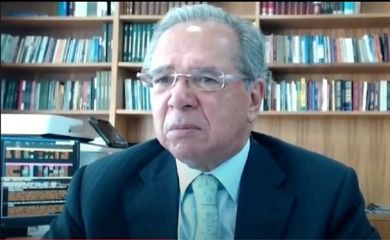Mercosur puts off Common External Tariff revision again

The revision of Mercosur’s Common External Tariff (CET) was postponed until next year, according to a joint statement signed by the presidents of country members (Argentina, Brazil, Paraguay, and Uruguay), released yesterday afternoon (15). Seen as a priority among Mercosur nations, the measure has been discussed more often since 2019.

“During this half-year, member states have continued the revision of the Common External Tariff (CET), with a view to increasing competitiveness in the bloc and the integration of both regional and global value chains. They have expressed their interest in continuing CET revision efforts. In this regard, it was decided to renew the mandate for the presentation of the revision proposal on the matter,” the statement read.
On Wednesday, the 57th Summit of the Heads of State of Mercosur and Associate States was held online. In his address, Brazil’s President Jair Bolsonaro said that Mercosur is “an ally in the promotion of the agenda of structural reforms” as well as a “crucial tool” in helping its members reach sustained economic growth.
CET is a set of tariffs on goods and services imported from companies within the bloc, and is based on the Mercosur Common Nomenclature (MCN) for goods and services. Its goal is to stimulate competitiveness among country members. The tariff has 11 tax rate levels ranging from zero to twenty percent, and may rise according to each item’s aggregate value.
In the joint statement, Mercosur country members underscored the strides made in talks on bringing the car sector in line with the customs union, on harmonizing rules on front-of-package food labels, and the closing of an e-commerce deal setting a common legal milestone for the sector within the bloc.
Trade agreements
Regarding international negotiations, the statement reiterated the countries’ common willingness to submit the European Union–Mercosur Trade Agreement, “urging [countries] to overcome the obstacles that have hindered the conclusion of an over-20-year-long process of joint efforts for a comprehensive, balanced, and ambitious agreement.” Approved in June last year, the deal still pends ratification by EU and Mercosur countries. However, the ratification of the agreement has been met with resistance from nations in the European Parliament, which criticize the government’s efforts in its environmental policy.
Also mentioned as priorities are trade pacts with Canada, South Korea, and Lebanon, in addition to the legal revision of an already signed deal with the European Free Trade Association (EFTA), made up of Switzerland, Iceland, and Liechtenstein.
Pandemic
As for measures to tackle the pandemic, the text notes the exchange of information among members—national norms, sanitary control in border areas, technology transfer, and deals to make vaccines and supplies available.
Other topics
Also stressed in the debate were the creation of the Mercosur’s Online Library and the steps taken towards the Mercosur Citizenship Statute, expected to be finalized on the bloc’s 30th anniversary, in 2021.
State members also expressed interest in advancing Bolivia’s admission process. The country is currently an associated member.


